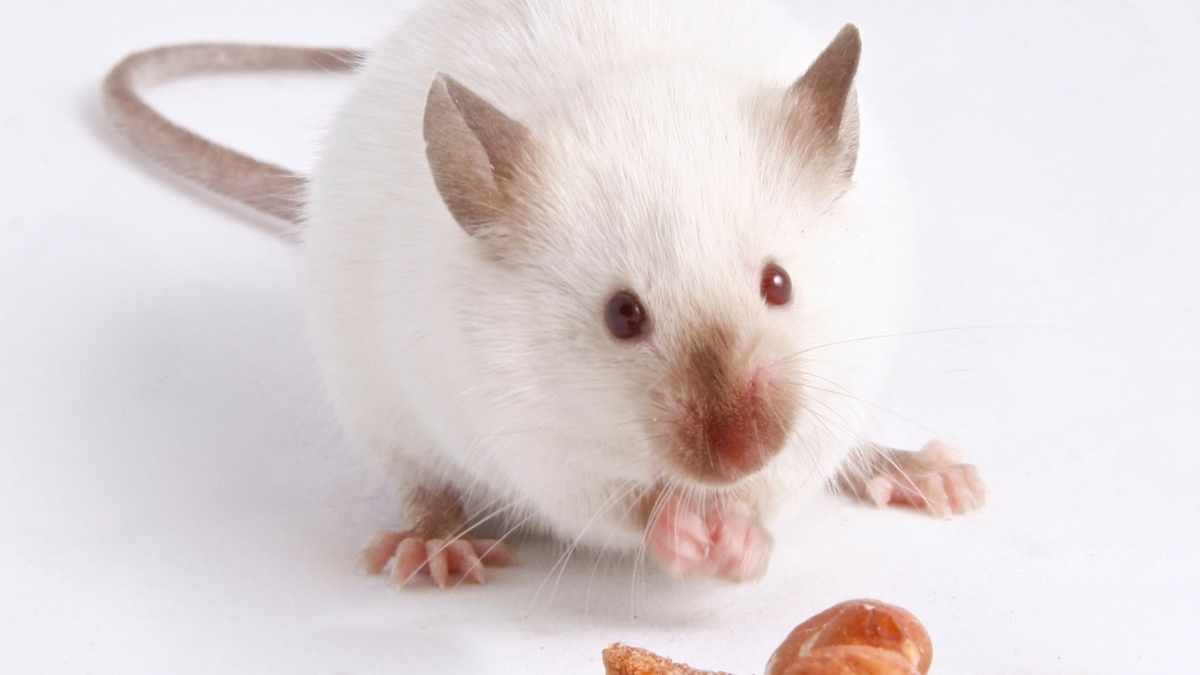Mice in the house are nothing short of a nightmare. Grains, fabrics, and furniture; mice chew through and feast on almost anything. It almost feels like their life’s mission to destroy anything precious to you.
Generally believed to be attracted to cheese, mice are omnivorous and prefer meat and vegetation. Although they do eat cheese, it is not their preferred food.
But leave out any other human (and even pet!) food, and you will find those pesky little creatures munching on them to their heart’s content.
What do mice eat in the house? Let’s take a look.
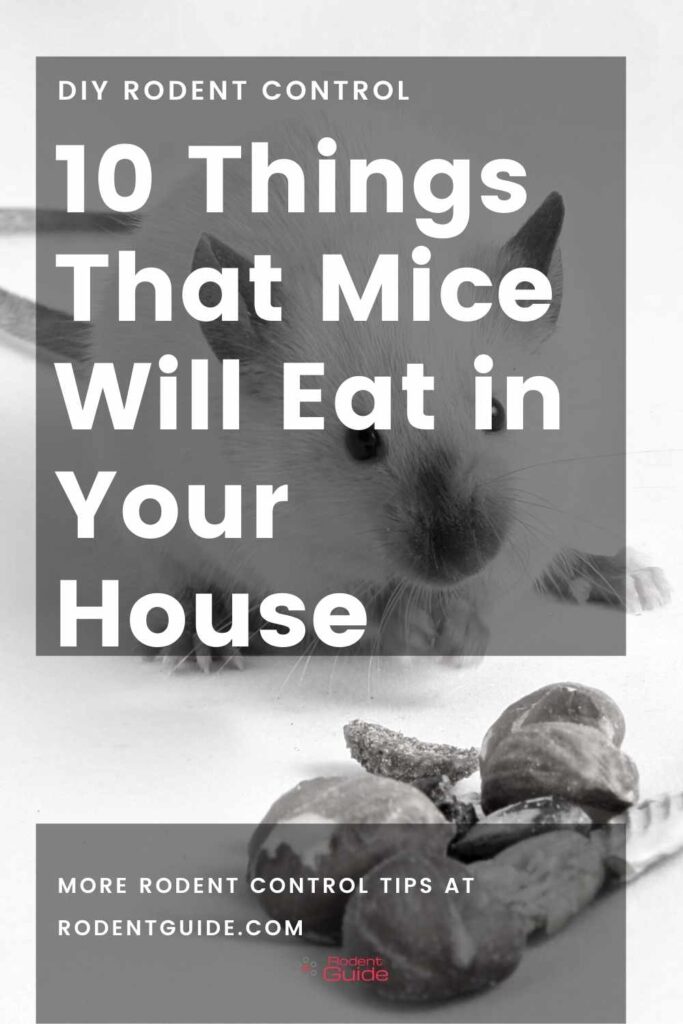
What Do Mice Eat In The House? These 10 Things
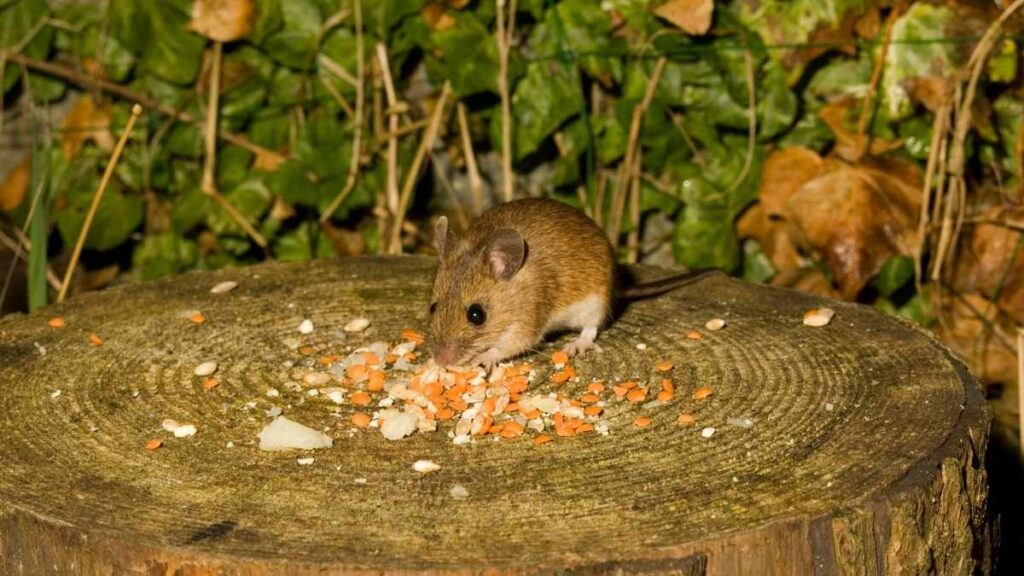
Here are the things a house mouse will eat in your home.
Some items may not be edible and will eventually be used as nesting materials by the mouse.
1. Seeds and Grains
Seeing the beady eyes of a rodent staring back at you from within your cereal box can turn off your appetite. They seem to be content chewing through almost any packaging just to get to the grains.
Grains are a staple in a mouse’s diet, especially wild ones. If you have rice bags lying around the house, check them first for mice infestations. Mice prefer whole grains of wheat, barley, oats, and maize.
It would help if you also were wary of leaving around seeds of any kind uncovered. Like humans, they also share a love for corn and sunflower seeds.
2. Plants
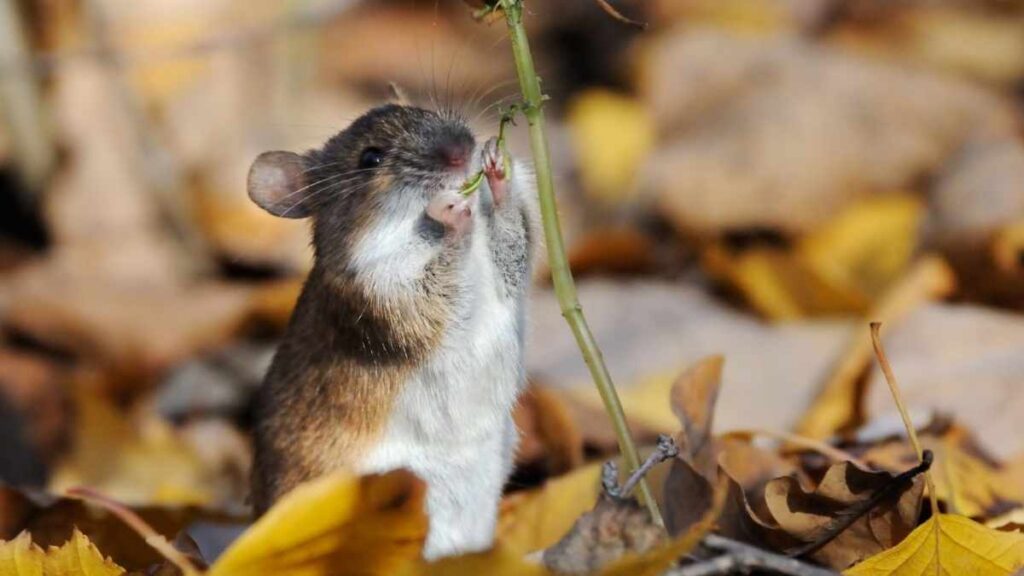
Mice can cause as much trouble to the outside of your home as they would to the inside. They do not prefer their plant diet and will munch through every type.
If you have growing weeds or plants near the base of your home, remove them as soon as possible. Moreover, remember to cover your garden beds or harvesting grounds with protective shields.
3. Fruits and Berries
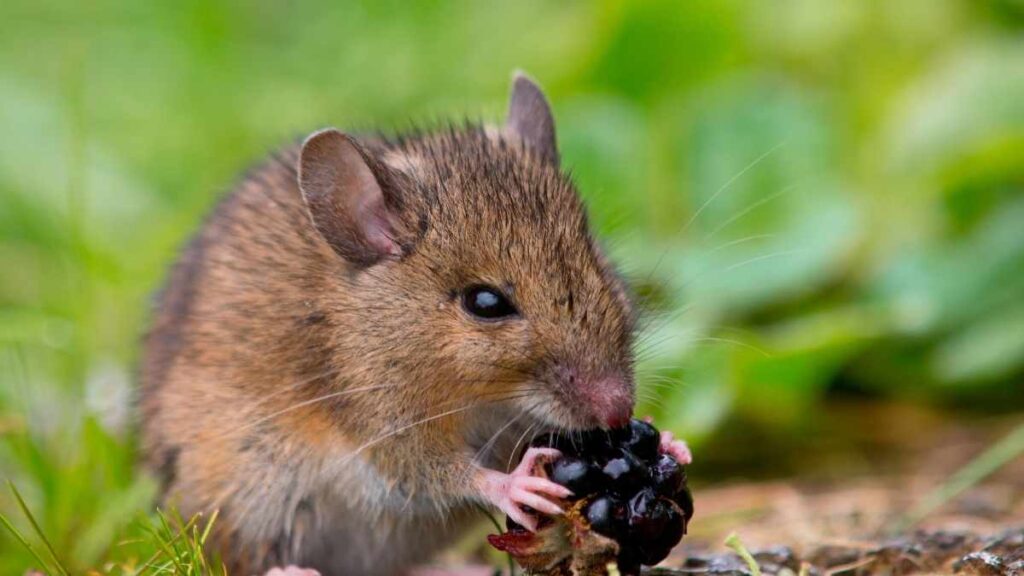
Their love for vegetation also includes fruits. If you have anything sweet and juicy growing on your garden plants, you should expect to see a mouse or two soon. Berries are highly popular amongst rodents.
However, that does not mean other fruit trees are safe. Mice also love eating pears, apples, peaches, and other fruits. Regularly check for fallen or rotten fruits in your yard and throw them out as soon as possible.
4. Meat
As omnivores, mice love feasting on meat as much as chewing through vegetation. However, this preference may differ from species to species. Rats prefer meat more than mice.
Make sure to dispose of meat properly when you plan on discarding them. Tie them carefully in poly bags or trash bags. Otherwise, the smell might lure in more than just rodents in your house.
But when it comes to meat or vegetation, mice always prefer the latter most.
5. Chocolates
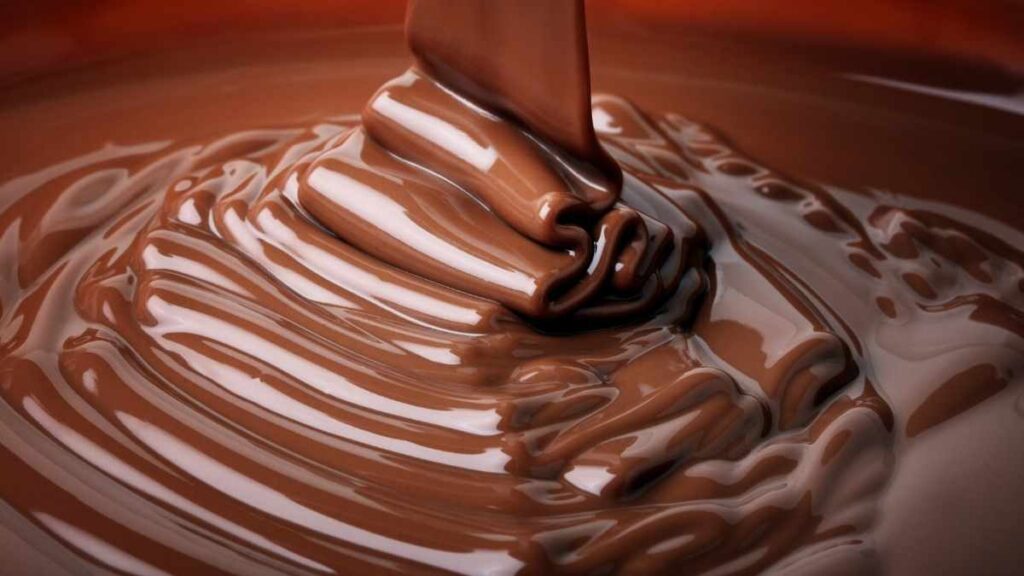
Chocolates are everyone’s weakness, which seems to be the same for rodents. Their knack for eating sweet things makes them go for your secret chocolate stashes. But even rodents have different likings and seem to like chocolates with higher dairy and lower cocoa.
Amongst the different types of chocolates, such as milk, white and dark chocolate, mice love consuming milk chocolates the most. They also eat white chocolate in small amounts.
This is why you can always ensure that your cooking or baker’s chocolate will be safe.
6. Peanut Butter
This seems weird since you would never expect to find peanut butter in the wild. But mice love them and cannot get enough of them.
Funnily enough, peanut butter is a popular choice for mouse bait. If mice love anything more than chocolates, it is peanut butter. They will go out of their way for a chance to get a nibble. Most people like catching rodents with a bucket, spoon, and a little peanut butter. This trap is incredibly effective.
7. Nuts
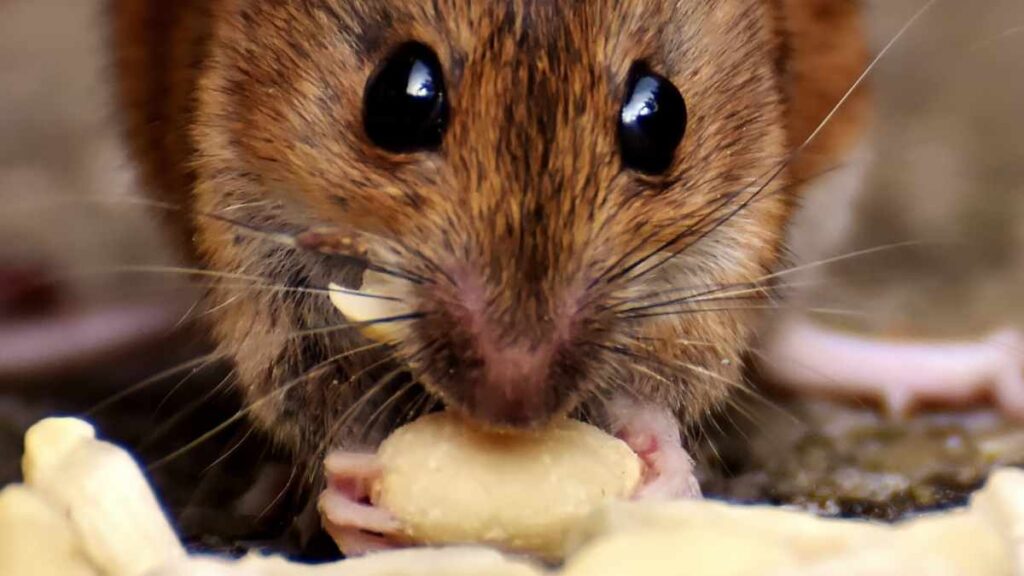
There is a reason why mice love peanut butter so much. It is because of their affinity towards nuts. Walnuts, peanuts, almonds, cashews, or hazelnuts, no matter what kind it is, they go nuts for it!
Mice love food with high protein content, fats, and salty food, which is why nuts are a favorite.
Make sure to keep your salty snacks tightly secured in airtight containers. If you leave them outside and suspect any rodent infestations, check for any holes in the packet and discard them if you notice any.
8. Pet Foods
Pet foods are a treat for mice. They do not care for the type of pet you have and will go straight to feasting on their food.
But they seem to prefer dog food the most. Because similar to them, dogs are omnivores and rely on a diet of meat and vegetation. And dog food tends to be high in protein and fats, making them highly appetizing to these tiny creatures.
Next to canines, they would also eat your cat, bird, or even your fish’s food if left out.
9. Papers and Cardboard
Another sign of mice infestation is chewed-up paper and cardboard.
Although it may seem like mice are eating them, they mostly use them to build their nests. To build their indoor home, they will gnaw and shred through other soft materials, such as toilet paper, strings, etc.
One of the easiest ways to determine if you have rats or mice in your home is to look at their nest. Mice like to burrow, while mice like to build their nests with these soft materials.
10. Electrical Wiring
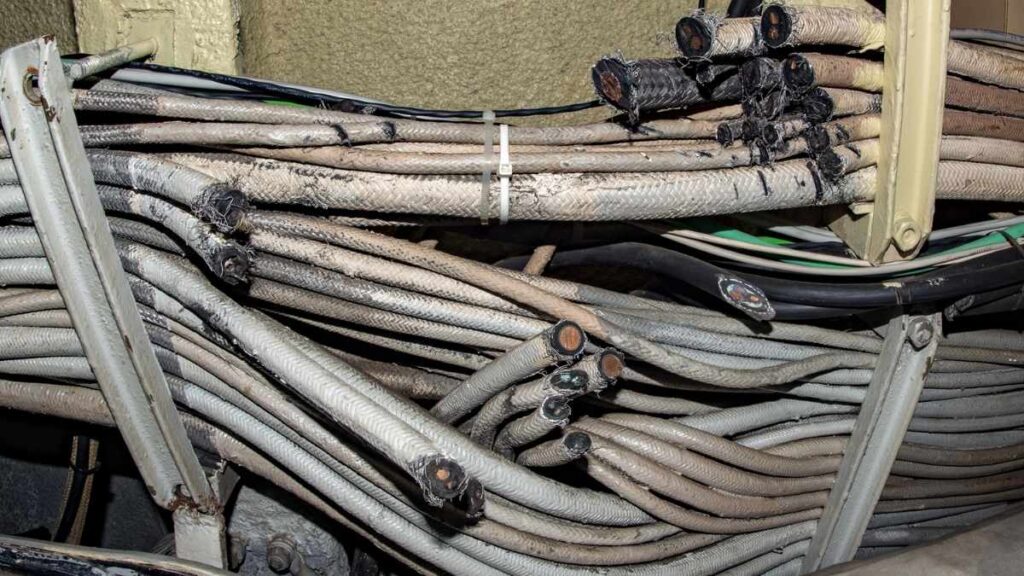
Electrical wirings are another material that mice like to chew on but not eat. They use the exterior covering as a tool to grind and sharpen their teeth.
The PVC and PE pipes, wires pipes, etc., are perfect for trimming their teeth.
Dealing With House Mice
House mice can be very troublesome to deal with! we have a guide for getting rid of mice that you should take some time to read. Ultimately, you should get rid of the following:
- Nests
- Mouse entry points
- Any food that is easily accessible
And set some traps up to catch the mice that have entered your home!
Conclusion
Contrary to popular belief, mice are not huge fans of cheese (although they will eat it). They prefer other human and pet foods you may have in the house.
Even if they do not use a substance as a food source, they mostly like to chew through them as a building or nesting material.
If you do not want those pesky little creatures anywhere in your house, ensure you do not tempt them by storing your food correctly.
If in doubt, always consult with a pest control company. Especially if you are not confident in dealing with a mouse infestation yourself.
Good luck!

